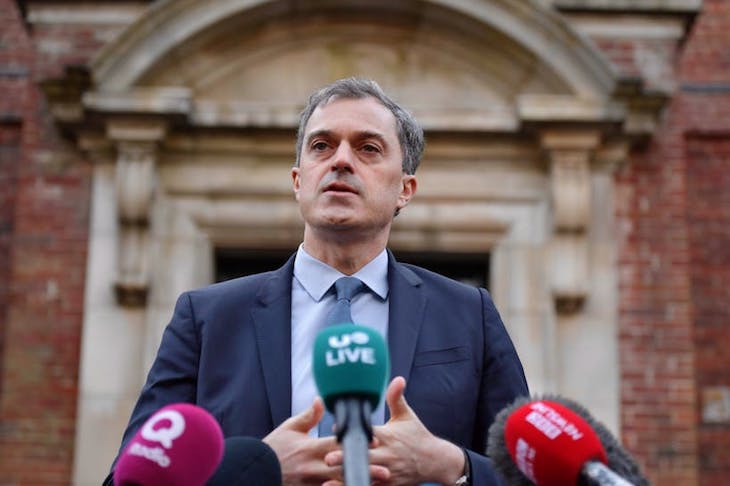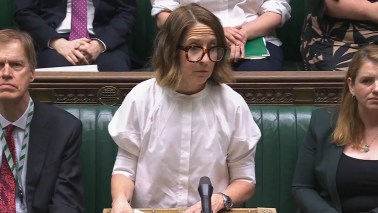There’s one thing to be said for the possibility of the reconvening of the Stormont Northern Ireland Assembly: it makes a fool of those of us who take a cynical view of these institutions as mere talking shops, opportunities for gamma politicians to sound off to their own side. Wrong. The thing has been out of action for three years to the day yesterday. And it was missed, if only as a means of approving public spending projects.
There’s a formidable backlog of pay deals that’ll have to go through when it reconvenes, starting with the commitment to clear hospital waiting lists; that’ll cost up to £1 billion.
Getting the nurses back to work (like those in the Republic, nurses in NI don’t scruple to strike) will cost another £50 million.
Teachers are looking for a further £70 million. The additional commitment to further spending on education could take, oh, £22 million.
And recruiting lots of extra police will cost some £40 million.
A few tens of million here, a few million there. Soon you’re talking real money.
But the genius of Northern Ireland secretary Julian Smith has been to make it clear to recalcitrant Stormont members – and we’re talking Sinn Fein mostly – that unless they get their act together and re-establish devolved government, there’s going to be no money. Not a bean. So when the nurses and teachers want to get the boot into someone, they know where to go. That has concentrated their minds.
Personally I would have expedited the process long ago by refusing to pay Assembly members any salary whatever while the Assembly wasn’t functioning.
The Government’s deal to kickstart the Assembly is based on an agreement between Westminster and the Irish government. This addresses some of the issues that caused the breakdown of relations between the DUP and Sinn Fein in the first place. Chief of them (now that Arlene Foster’s involvement in a curious eco-energy project has been largely forgotten) is the Irish language. The two governments have cobbled together a number of measures to pacify the Republicans – because it is almost entirely a Sinn Fein preoccupation – including the appointment of an Irish language commissioner and an Ulster-Scots commissioner, with the status of the Irish language acknowledged in law.
Now I have the utmost respect for the Irish language, its history, literature, cultural significance and the rest. I was taught it for years and the fact that (in common with many Irish) I have forgotten almost all of it and now know significantly more Serbo Croat is my own fault. But what I don’t get is why it’s turned into a pivotal issue in Northern Ireland where there are so few (if any) native speakers. If you want to find native Irish speakers in Ulster they are indeed out there. But in Donegal, on the Republic side of the border. Some ten per cent of the population in the North said in the 2011 census that they speak some Irish. Really?
What it looks like a mile off is a totemic issue – the code words here are “parity of esteem” – that will cost the taxpayer millions. It all comes under the remit of a new office for identity and cultural expression. What are the chances of it considering the Orange marches of 12 July as expressions of cultural identity and so sacrosanct?
Constitutionally, the interesting thing is that this deal is a joint Dublin-London exercise, represented by Simon Coveney for the Irish government and Julian Smith for the Brits. In other words, the Irish government really does have a significant role in the working of the Stormont Assembly; it is a formal player in the affairs of Northern Ireland and the UK. Dwell on that, British Unionists. And consider further, the Irish government is investing in infrastructure in the North, which makes sense for areas where the infrastructure in question crosses the border, but is symbolically significant in the broader scheme of things. So much for Brexit being a seismic issue.
One casualty of the three years of non-functioning devolved government is one unnoticed section of the population: foetuses. In an exercise in astonishing legislative overreach, Stella Creasy and Conor McGinn introduced a measure in July to ensure that if Stormont wasn’t reconvened by October, Westminster would legislate to introduce abortion and same sex marriage – two highly controversial and divisive issues – to Northern Ireland. That has now happened. Any chance that a reconvened Stormont could take these issues back under its remit? Thought not.







Comments